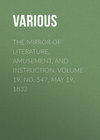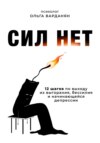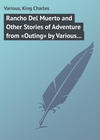Читать книгу: «The Mirror of Literature, Amusement, and Instruction. Volume 19, No. 547, May 19, 1832», страница 3
ANECDOTE GALLERY
THE UNLUCKY PRESENT: A TALE
A Lanarkshire minister (who died within the present century) was one of those unhappy persons, who, to use the words of a well known Scottish adage, "can never see green cheese but their een reels." He was extremely covetous and that not only of nice articles of food, but of many other things which do not generally excite the cupidity of the human heart. The following story is in corroboration of this assertion:—Being on a visit one day at the house of one of his parishioners, a poor lonely widow, living in a moorland part of the parish, he became fascinated by the charms of a little cast-iron pot, which happened at the time to be lying on the hearth, full of potatoes for the poor woman's dinner, and that of her children. He had never in his life seen such a nice little pot—it was a perfect conceit of a thing—it was a gem—no pot on earth could match it in symmetry—it was an object altogether perfectly lovely. "Dear sake! minister," said the widow, quite overpowered by the reverend man's commendations of her pot; "if ye like the pot sae weel as a' that, I beg ye'll let me send it to the manse. It's a kind o' orra (superfluous) pot wi' us; for we've a bigger ane, that we use for ordinar, and that's mair convenient every way for us. Sae ye'll just tak a present o't. I'll send it ower the morn wi' Jamie, when he gangs to the schule." "Oh!" said the minister, "I can by no means permit you to be at so much trouble. Since you are so good as to give me the pot, I'll just carry it home with me in my hand. I'm so much taken with it, indeed, that I would really prefer carrying it myself." After much altercation between the minister and the widow, on this delicate point of politeness, it was agreed that he should carry home the pot himself.
Off then he trudged, bearing this curious little culinary article, alternately in his hand and under his arm, as seemed most convenient to him. Unfortunately the day was warm, the way long, and the minister fat; so that he became heartily tired of his burden before he got half-way home. Under these distressing circumstances, it struck him, that, if, instead of carrying the pot awkwardly at one side of his person, he were to carry it on his head, the burden would be greatly lightened; the principles of natural philosophy, which he had learned at college, informing him, that when a load presses directly and immediately upon any object, it is far less onerous than when it hangs at the remote end of a lever. Accordingly, doffing his hat, which he resolved to carry home in his band, and having applied his handkerchief to his brow, he clapped the pot, in inverted fashion, upon his head, where, as the reader may suppose, it figured much like Mambrino's helmet upon the crazed capital of Don Quixote, only a great deal more magnificent in shape and dimensions. There was, at first, much relief and much comfort in this new mode of carrying the pot; but mark the result. The unfortunate minister having taken a by-path, to escape observation, found himself, when still a good way from home, under the necessity of leaping over a ditch, which intercepted him, in passing from one field to another. He jumped; but surely no jump was ever taken so completely in, or, at least into, the dark as this. The concussion given to his person in descending caused the helmet to become a hood; the pot slipped down over his face, and resting with the rim upon his neck, stuck fast there; enclosing his whole head as completely as ever that of a new born child was enclosed by the filmy bag, with which nature, as an indication of future good fortune, sometimes invests the noddles of her favourite offspring. What was worst of all, the nose, which had permitted the pot to slip down over it, withstood every desperate attempt, on the part of its proprietor, to make it slip back again; the contracted part, or neck, of the patera, being of such a peculiar formation as to cling fast to the base of the nose, although it had found no difficulty in gliding along its hypothenuse. Was ever minister in a worse plight? Was there ever contretemps so unlucky? Did ever any man—did ever any minister, so effectually hoodwink himself, or so thoroughly shut his eyes, to the plain light of nature? What was to be done? The place was lonely; the way difficult and dangerous; human relief was remote, almost beyond reach. It was impossible even to cry for help; or, if a cry could be uttered, it might reach, in deafening reverberation, the ear of the utterer, but it would not travel twelve inches farther in any direction. To add to the distresses of the case, the unhappy sufferer soon found great difficulty in breathing. What with the heat occasioned by the beating of the sun on the metal, and what with the frequent return of the same heated air to his lungs, he was in the utmost danger of suffocation. Every thing considered, it seemed likely that, if he did not chance to be relieved by some accidental wayfarer, there would soon be death in the pot.
The instinctive love of life, however, is omni-prevalent; and even very stupid people have been found, when put to the push by strong and imminent peril, to exhibit a degree of presence of mind, and exert a degree of energy, far above what might have been expected from them, or what they were ever known to exhibit, or exert, under ordinary circumstances. So it was with the pot-ensconced minister. Pressed by the urgency of his distresses, he fortunately recollected that there was a smith's shop at the distance of about a mile across the fields, where, if he could reach it before the period of suffocation, he might possibly find relief. Deprived of his eyesight, he acted only as a man of feeling, and went on as cautiously as he could, with his hat in his hand. Half crawling, half sliding, over ridge and furrow, ditch and hedge, somewhat like Satan floundering over chaos, the unhappy minister travelled with all possible speed, as nearly as he could guess, in the direction of the place of refuge. I leave it to the reader to conceive the surprise, the mirth, the infinite amusement of the smith, and all the hangers-on of the smiddy, when, at length, torn and worn, faint and exhausted, blind and breathless, the unfortunate man arrived at the place, and let them know (rather by signs than by words) the circumstances of his case. In the words of an old Scottish song,
"Out cam the gudeman, and high he shouted;
Out cam the gudewife, and low she louted;
And a' the town neighbours were gathered about it:
And there was he, I trow."
The merriment of the company, however, soon gave way to considerations of humanity. Ludicrous as was the minister, with such an object where his head should have been, and with the feet of the pot pointing upwards, like the horns of the great Enemy, it was, nevertheless, necessary that he should be speedily restored to his ordinary condition, if it were for no other reason than that he might continue to live. He was accordingly, at his own request led into the smithy, multitudes flocking around to tender him their kindest offices, or to witness the process of release; and, having laid down his head upon the anvil, the smith lost no time in seizing and poising his goodly forehammer. "Will I come sair on, minister?" exclaimed the considerate man of iron, in at the brink of the pot. "As sair as ye like," was the minister's answer; "better a chap i' the chafts than die for want of breath." Thus permitted, the man let fall a blow, which fortunately broke the pot in pieces, without hurting the head which it enclosed, as the cook-maid breaks the shell of the lobster, without bruising the delicate food within. A few minutes of the clear air, and a glass from the gudewife's bottle, restored the unfortunate man of prayer; but, assuredly, the incident is one which will long live in the memory of the parishioners of C–.—Chambers' Edinburgh Journal.
THE NATURALIST
LOUDON'S MAGAZINE OF NATURAL HISTORY
Sundry and manifold are our obligations to this delightful Journal. From the Number (26) for the present month we glean the following:
The Gurnard and Sprat.
Mr. J. Couch, in an interesting paper on the fishes of Cornwall, has the following notes:
"Ray observes that the word gurnard, which may be regarded as the English term, is derived a grunnitu, from grunting like a hog. In this, however, I venture to think this eminent naturalist mistaken. Pengurn is the ancient Cornu-British name for these fishes, and signifies hard head; and its English translation is now sometimes given to the grey gurnard. From the Cornish word gurn (hard), I therefore derive the name, as descriptive of the head of these species. This is a common fish at all seasons; but in December and January it sometimes abounds to such a degree, that, as they are not much esteemed, I have known them sold at thirty for a penny. It keeps near the bottom commonly, at no great distance from land; but sometimes multitudes will mount together to the surface; and move along with the first dorsal fin above the water: they will even quit their native element, and spring to the distance of a yard; thus imitating the flying gurnard, though not to the same extent. In summer they are found basking in the sun, perhaps asleep, as they will at times display no signs of animation, until an attempt is made to seize them.
"In reference to some observations by Mr. Yarrell, in the Zoological Journal, relative to the distinction between the sprat and the young of the pilchard and herring, I can state that Cornish fishermen term the young of both the latter fishes sprats; but, how far this should go in determining the judgment of a naturalist will appear, when I add that I have never seen above one specimen of the genuine sprat in Cornwall, and that was brought me by a fisherman, to be informed what fish it was. In taking fish out of his net by night, he felt it to be neither a pilchard nor a herring, and supposed it something rare."





















